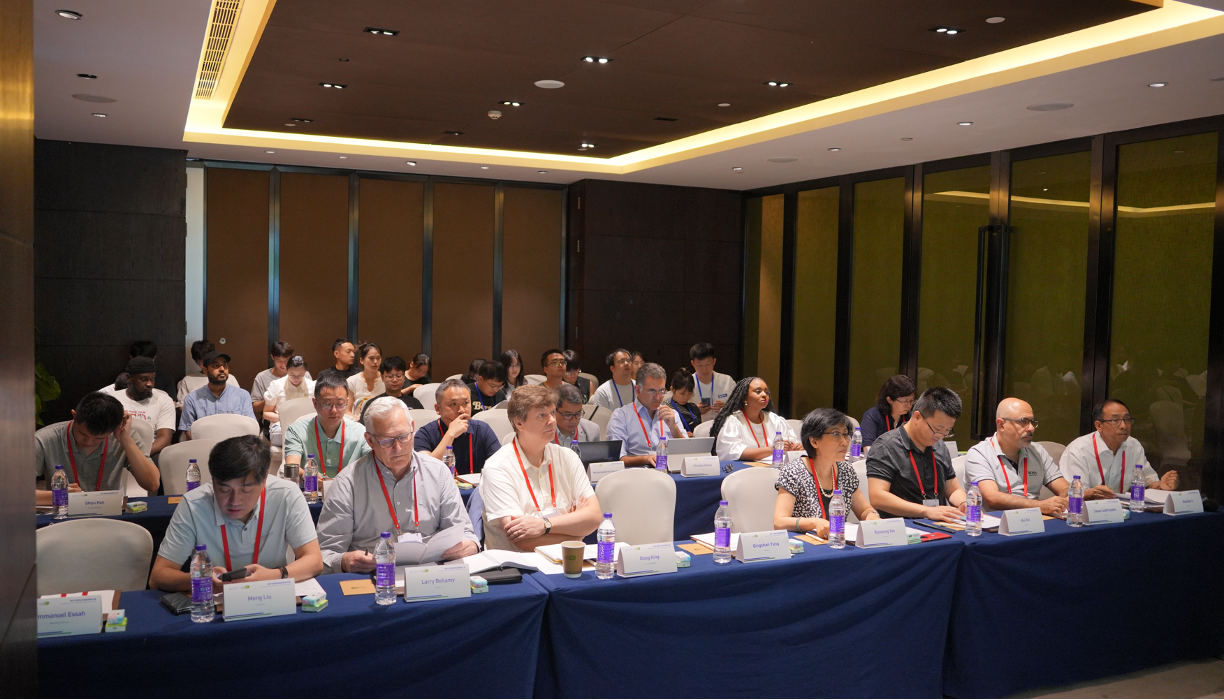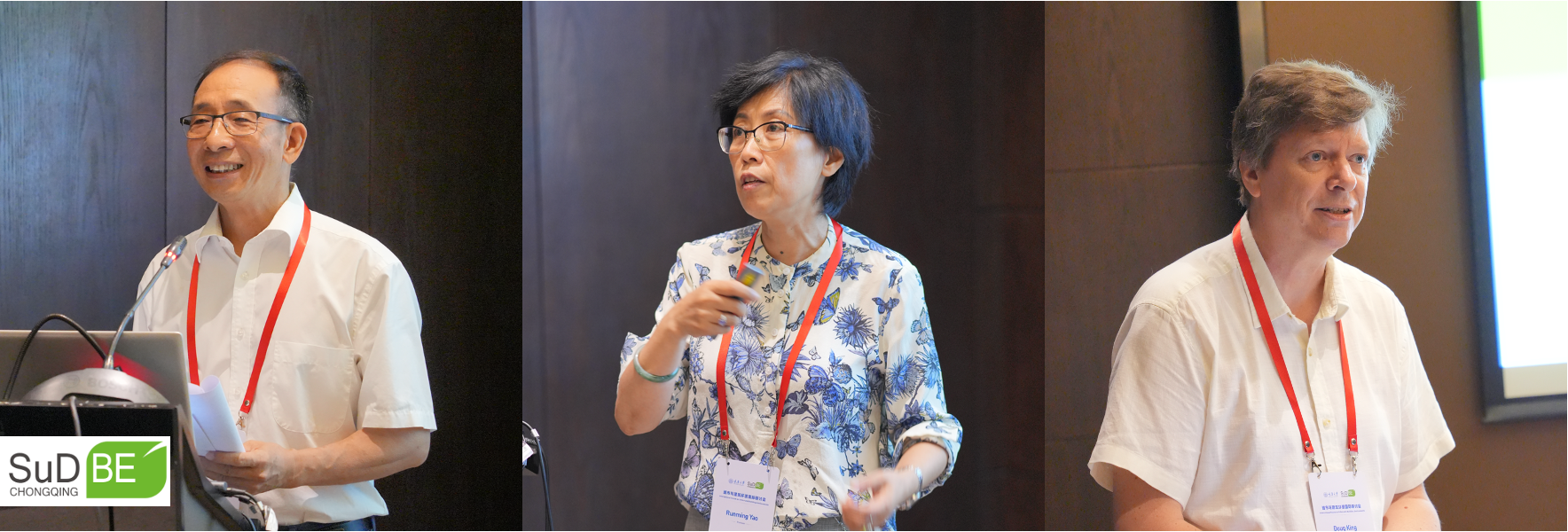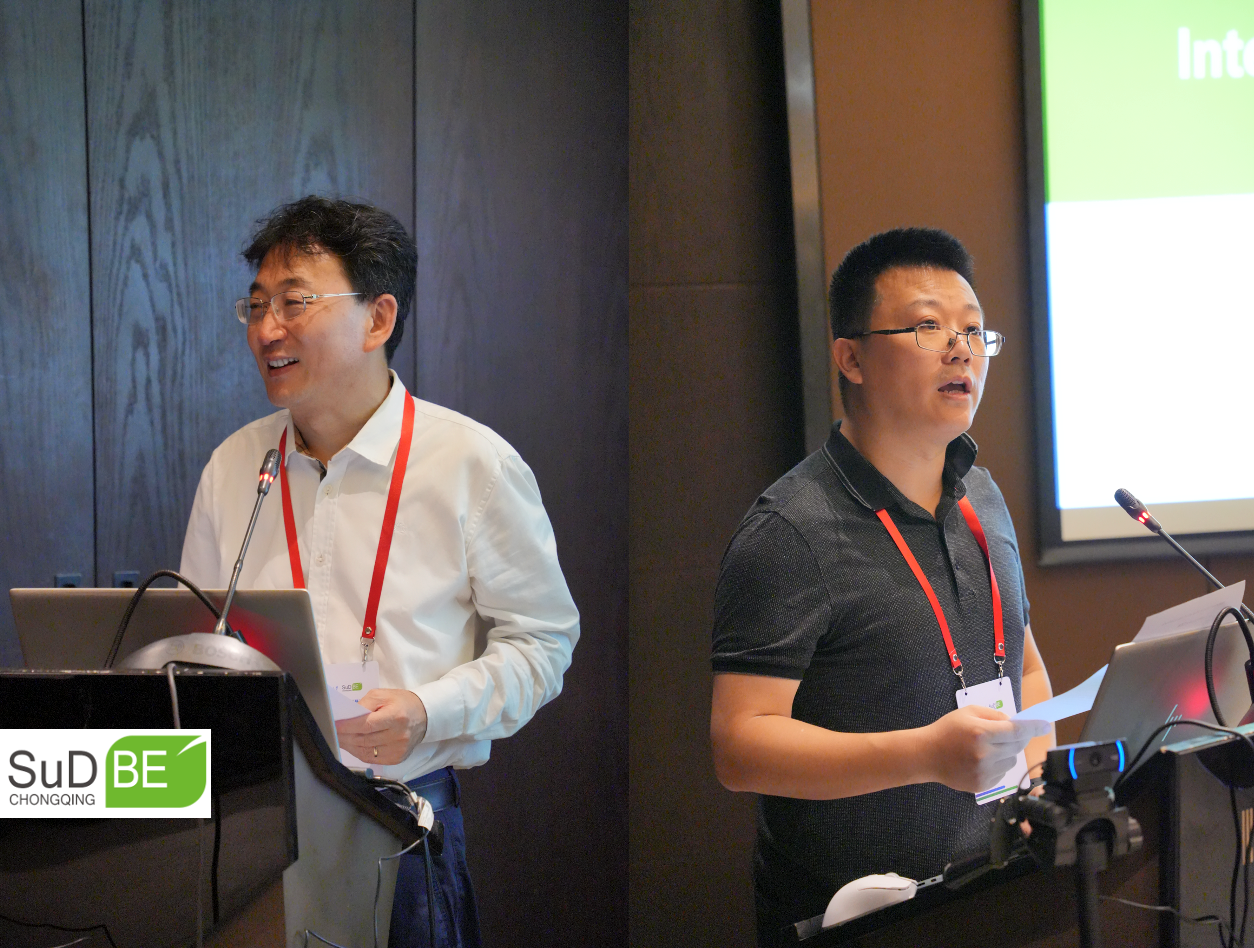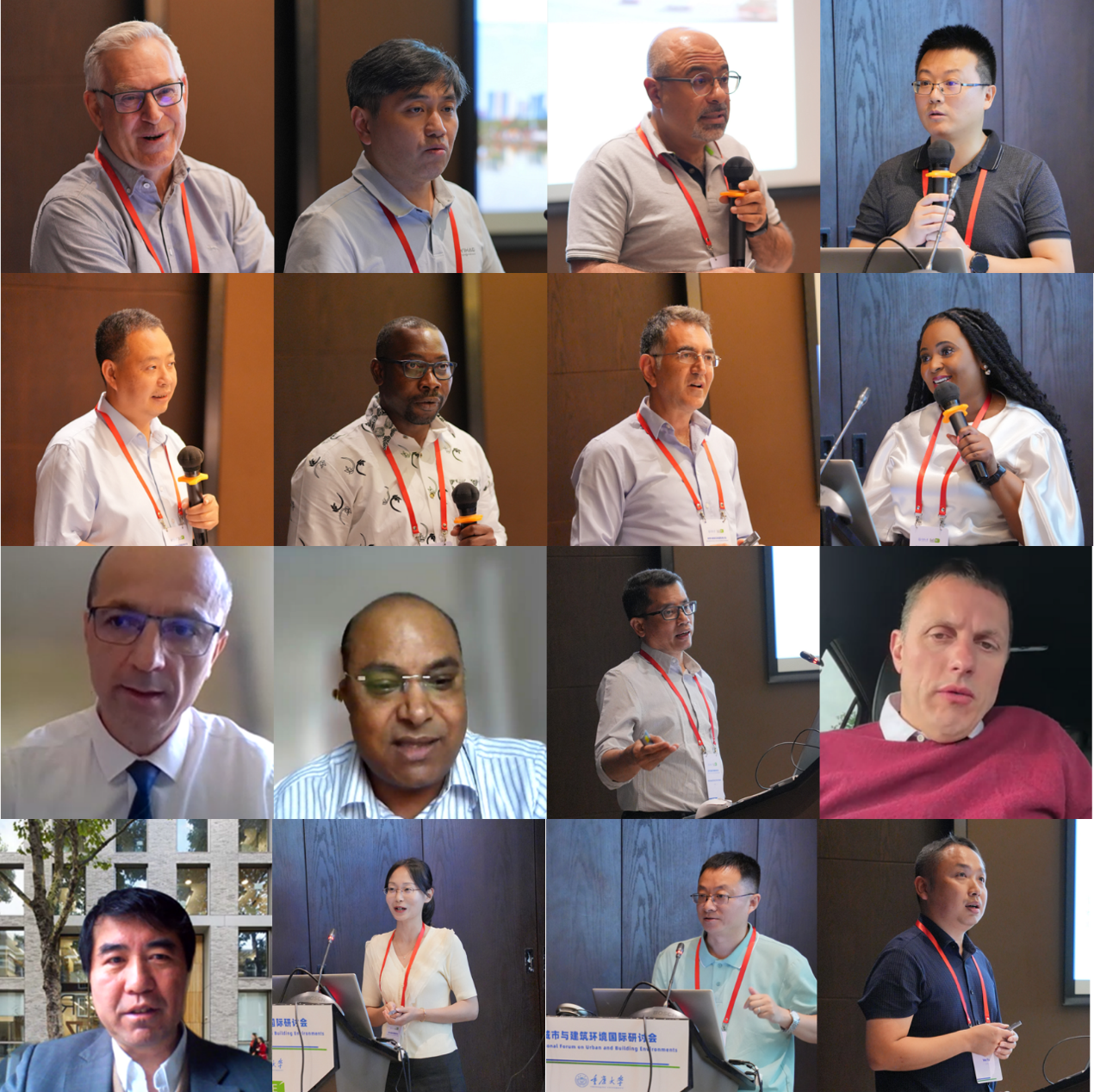2024年9月4日至5日,城市与建筑环境国际研讨会在重庆召开。

国际研讨会由国际联合研究中心主任李百战教授、国际合作联合实验室主任姚润明教授,以及英国皇家工程院院士Doug King教授共同主持。会议特邀中外相关领域的专家学者,围绕城市与建筑环境和建筑领域的研究与教育成果展开深度交流。在全球变暖和减碳背景下,专家们多维度探讨如何应对城市气候变化、改善城市热环境和空气质量、保护人类健康。此次研讨会旨在通过国际科技交流与合作,共同应对全球性挑战。

重庆大学科发院谢辉副院长、土木工程学院杨庆山院长对城市与建筑环境国际研讨会的召开表示祝贺,并对来自国内外的专家们表示热烈欢迎。新西兰坎特伯雷大学Larry Bellamy教授、瑞典皇家理工学院Sasan Sadrizadeh教授、澳大利亚昆士兰大学Ali Cheshmehzangi教授、英国雷丁大学Emmanuel Essah副教授、英国雷丁大学Christos Halios博士、印度尼西亚万隆理工学院Mochamad Donny Koerniawan博士、南非金山大学Zamageda Zungu博士以及重庆大学相关领域教授现场出席,英国皇家工程院院士伦敦大学学院Jian Kang教授、英国剑桥大学Alan Short教授、英国帝国理工学院Christopher Pain教授、匈牙利德布勒森大学Ferenc Kalmár教授、英国萨里大学Prashant Kumar教授、都柏林大学James O'Donnell副教授、意大利卡塔尼亚大学Vincenzo Costanzo副教授线上参会,共20余人应邀出席会议并做学术报告。

姚润明教授代表国际联合中心外专合作主任英国剑桥大学Alan Short教授致辞,Alan教授对无法亲自参加重庆研讨会感到遗憾,并表示剑桥大学非常重视全球空气质量的改善。他回忆了伦敦的严重雾霾,并指出尽管空气质量有所改善,人们对呼吸空气的关注却在增加,并促使英国成立了SAGE通风小组。最后,他表示对研讨会顺利召开充满期待。

姚润明教授介绍了重庆大学悠久的教育历史和深厚的教育底蕴,在能源、制造、工程等学科领域优势显著。并指出学校积极推进国际化发展,已与40个国家和地区的300多所大学和研究机构建立了合作关系,拥有近20个国际合作平台。随后介绍了低碳绿色建筑与人居环境营造国际合作基地(以下简称国合基地)的基本情况和发展历程,以及围绕国家“双碳”绿色目标,在科学研究、人才培养与国际交流方面取得的成效。最后,介绍了正在进行的国家项目,包含两项“一带一路”国际项目、国家自然科学基金项目和“十四五”项目。自2022年以来,在《buildings》、《journal of building engineering》、《indoor air》等期刊发表超过10篇论文。
李百战教授和姚润明教授主持了论坛学术讨论,近20位专家深度分享在城市和建筑低碳领域的研究成果,多个维度多个方面探讨城市和建筑应对气候变化、提高热韧性的发展方向和适应性技术策略、方案机制。最后,国内外专家围绕教育和科技合作、人员交流、学生联合培养等问题开展圆桌讨论。
本次研讨会由重庆大学主办,重庆大学国家级低碳绿色建筑国际联合研究中心、绿色建筑与人居环境营造教育部国际合作联合实验室、土木工程学院共同承办。

附录:
Content |
Speaker |
Use of a wellbeing framework for establishing building sustainability performance requirements in building regulations |
Larry Bellamy |
A new pathway of exploring dynamic thermal demand in residential buildings with the IoT technology |
Meng Liu |
Enhancing IAQ insights in healthcare facilities: Leveraging VR, XR, and CFD for advanced understanding |
Sasan Sadrizadeh |
Intelligent soundscape research with multi-sensory interactions |
Hui Xie |
Biotic homogenization and rewilding of urban greening |
Yongchuan Yang |
The impact of plants on the humidity of naturally ventilated office indoor environments |
Emmanuel Essah |
Exploring the interdependence of spectral and thermal signatures of the tree canopy-background surface system |
Christos Halios |
Assessing resilience strategies for energy crisis mitigation in South African Townships: A comprehensive study of individuals, buildings and infrastructure |
Zamageda Zungu |
Research related to thermal comfort at the University of Debrecen |
Ferenc Kalmár |
Urban Greening for pollution and heat abatement |
Prashant Kumar |
The adaptation of tropical person in thermal comfort: evaluating perception of scales for subjective assessment of thermal comfort for workers in Indonesia |
Mochamad Donny Koerniawan |
A national/urban scale digital twin of residential buildings to empower life-cycle multi-domain assessments |
James O'Donnell |
Integrating Sound into Sustainable Built Environment |
Jian Kang |
The outcomes of the INHALE consortium in terms of personal health, urban pollution and indoor modelling |
Christopher Pain |
The effects of a green facade on the indoor thermal conditions of a lightweight buildings: an experimental and numerical investigation |
Vincenzo Costanzo |
Dynamic thermal environment evaluation and regulation based on personal comfort demands |
Chenqiu Du |
Pathway to low-carbon city - Analysis of the needs and differences |
Ding Yong |
The impact and control of indoor thermal environment on arthritis in the elderly |
Wei Yu |

